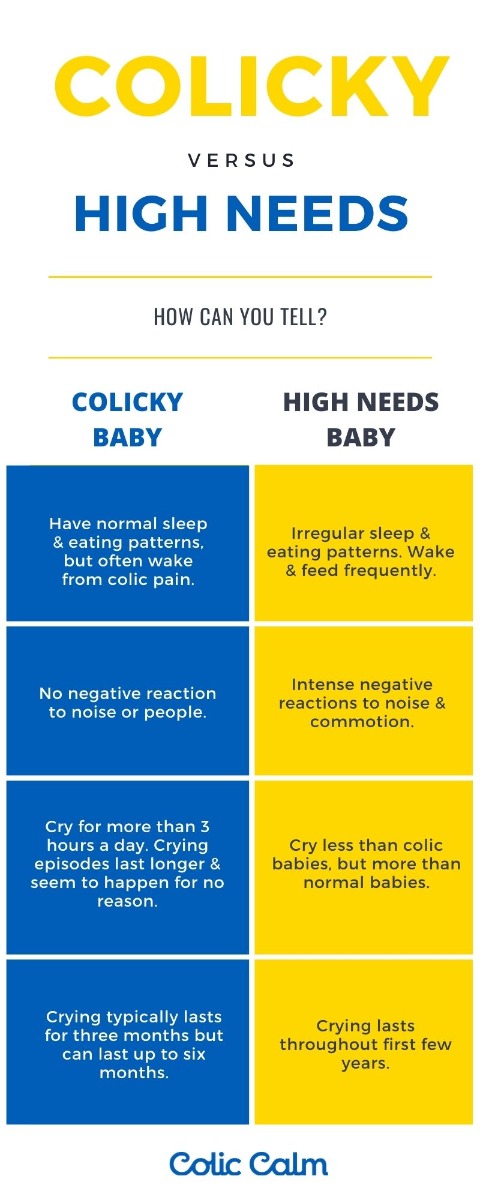Colic is a common condition that affects many newborns and infants. It can be a cause of distress for both babies and parents. Understanding the symptoms of colic can help parents identify if their baby has colic or if there may be another underlying issue causing their discomfort.
Symptoms of Colic
Babies who have colic may exhibit the following symptoms:
- Turning bright red when crying
- Clenched fists
- Lots of crying
- Arched back
- Legs curled up over their tummy
- Vomiting
- A tight belly
- Enlarged or distended stomach
- Inconsolability
If your baby is consistently displaying these symptoms, it may be an indication that they have colic.
Colic vs. Gas
It is important to differentiate between colic and gas as the symptoms can be similar. Gas is a common occurrence in infants and can cause discomfort, but the crying and fussiness associated with colic typically lasts for hours across days and weeks.
If your baby has painful gas, it may cause them to cry or become fussy until the gas is passed. However, if the crying and fussiness are persistent and prolonged, it is more likely to be colic.
When Does Colic Start?
Colic can start as early as a few weeks after birth and typically resolves around 3 to 4 months of age. It is characterized by frequent, prolonged, and intense crying or fussiness in an otherwise healthy infant.
Identifying Colic
There are several signs that can help you identify if your baby has colic:
- Burping often or passing a lot of gas
- Having a bright red (flushed) face
- Having a tight belly
- Curling up their legs toward their belly when crying
- Clenching their fists when crying
If your baby is displaying these signs, it is important to consult with a healthcare professional to confirm the diagnosis and seek appropriate treatment.

Credit: dadsadventure.com

Credit: www.coliccalm.com
What Causes Colic?
The exact cause of colic is unknown, but there are several factors that may contribute to its development:
- An immature digestive system
- Food allergies or sensitivities
- Anxiety or stress in the baby or parent
- Overstimulation
It is important to note that colic is not caused by poor parenting or any actions taken by the parents.
Treating Colic
While there is no cure for colic, there are several methods that may help alleviate the symptoms and provide relief for both the baby and the parents:
- Parental support and understanding
- Creating a calm and soothing environment
- Trying different feeding techniques or formulas
- Using pacifiers or other comforting objects
- Implementing gentle massage or chiropractic care
It is essential to remember that what works for one baby may not work for another. It may take some trial and error to find the most effective strategies for managing your baby’s colic.
Frequently Asked Questions For How Do You Know If Baby Has Colic
What Are The Main Symptoms Of Colic?
Symptoms of colic include: frequent burping and passing gas, flushed face, tight belly, legs curled up towards the belly, clenched fists. Colicky babies may cry or be fussy for several hours a day with no apparent reason. These symptoms are different from normal crying and can last for hours across days and weeks.
How Do I Know If Its Colic Or Gas?
Colic in babies can cause prolonged, intense crying for hours each day, while gas pain tends to be shorter and more related to feeding. Look for symptoms like clenched fists, arched back, and inconsolable crying for colic, and burping and passing gas frequently for gas pain.
At What Stage Does Colic Start?
Colic typically starts in the first few weeks of a baby’s life.
What Does Colic Poop Look Like?
Colic poop can vary but may be watery, explosive, or contain mucus, indicating gastrointestinal distress in infants.
Conclusion
Colic can be a challenging and distressing period for both babies and parents. Understanding the symptoms and seeking appropriate support and treatment can help alleviate some of the difficulties associated with colic. Remember to consult with your healthcare professional for proper diagnosis and guidance on managing colic in your baby.